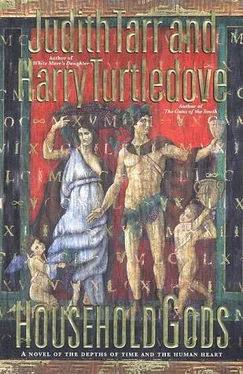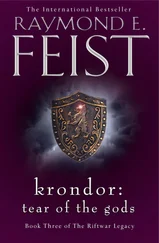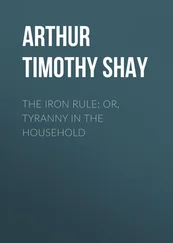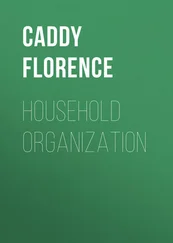Judith Tarr - Household Gods
Здесь есть возможность читать онлайн «Judith Tarr - Household Gods» весь текст электронной книги совершенно бесплатно (целиком полную версию без сокращений). В некоторых случаях можно слушать аудио, скачать через торрент в формате fb2 и присутствует краткое содержание. Жанр: Фэнтези, на английском языке. Описание произведения, (предисловие) а так же отзывы посетителей доступны на портале библиотеки ЛибКат.
- Название:Household Gods
- Автор:
- Жанр:
- Год:неизвестен
- ISBN:нет данных
- Рейтинг книги:5 / 5. Голосов: 1
-
Избранное:Добавить в избранное
- Отзывы:
-
Ваша оценка:
- 100
- 1
- 2
- 3
- 4
- 5
Household Gods: краткое содержание, описание и аннотация
Предлагаем к чтению аннотацию, описание, краткое содержание или предисловие (зависит от того, что написал сам автор книги «Household Gods»). Если вы не нашли необходимую информацию о книге — напишите в комментариях, мы постараемся отыскать её.
Household Gods — читать онлайн бесплатно полную книгу (весь текст) целиком
Ниже представлен текст книги, разбитый по страницам. Система сохранения места последней прочитанной страницы, позволяет с удобством читать онлайн бесплатно книгу «Household Gods», без необходимости каждый раз заново искать на чём Вы остановились. Поставьте закладку, и сможете в любой момент перейти на страницу, на которой закончили чтение.
Интервал:
Закладка:
She rummaged hastily through the drawers of the chest. The only box there was the one she’d found earlier, with its pots and jars of makeup. More out of desperation than anything else, she pulled the chest away from the wall — and nearly fell down in relief. There where it must have rested between chest and wall sat a wooden box. She picked it up, and grunted a little with surprise. It was heavy — and it rattled, a lovely, faintly sweet sound, the sound — she hoped — of coins sliding against one another.
The dizziness of relief went briefly dark. She’d crowed too soon. This had to be the cash box, and that was wonderful — but the box was locked.
The lock, broader and deeper than a regular padlock, was of shiny brass like a sestertius. So were the hasps holding it to the cash box. Those hasps looked stout. Nicole tugged hard at the lock. No give at all. No way she’d pull that lock off, or break it either, not without tools. She had to find the key.
And if she wanted to keep people downstairs from suspecting that she wasn’t Umma, she’d have to find the key pretty damn quick. “Where the hell did she put it?” she muttered in English. The words felt strange on her tongue after so many hours of speaking Latin.
She knew what was in the drawer with the makeup case. She’d emptied that one out most thoroughly. She shuffled through the others one at a time, with rapidly receding hope. Last of all and reluctantly, with the same sensation she’d had when she had to change a loaded diaper, she opened the drawer filled with stained rags. She tossed them on the floor, trying to touch them as little as possible. Close to the bottom, tangled in a knot of ill-washed scraps, something caught at her fingers. She pulled at the rags. The thing inside them slipped free. She’d been afraid it would be a brooch or a buckle or a bit of useless jewelry, but her luck had finally turned. A brass key gleamed in the shadow of the drawer. It was an odd-looking thing, the teeth cut perpendicular to the shaft instead of along its edge as on the keys she knew.
When she thrust the key into the lock, it refused to turn. “Oh, come on!” she snapped at it. She twisted and jiggled. Nothing. Her fingers clenched till they began to ache.
She hissed at them and at the intractable lock — God, don’t tell me that’s not the key, it’s got to be the key. Just as she was about to scream in frustration, the lock clicked and, grudgingly, ground open.
She held her breath as she opened the box. If it proved to be full of buttons or bangles or something equally worthless, she really was going to scream.
Her breath rushed out in a groan of relief. The box was filled nearly full: copper, bronze, even a little silver, coins of all sizes and states of wear, from dim and almost illegible asses to silver denarii like the one she had to make change for, and quickly too. It would be just her luck if the customer had cursed her and her fool of a slave, taken his change and his denarius too, and left in a snit.
She hurled the rags all anyhow back into the drawer, slammed it shut, shoved the chest against the wall, and fairly fell downstairs. The man was still there, for a miracle. He’d fallen into conversation with another of the customers, she hoped not about how strangely Umma was acting today; he broke it off in his own good time, and took the three sesterces that she handed him, scowling at their brassy gleam. “Took you long enough,” he growled. “What did you have to do, fetch them from the mint?”
“Was that lock giving you trouble again, Mistress?” Julia asked with an air of great solicitude. Turning to the customer, she went on, “You should hear all the things Mistress Umma calls that lock. Anybody would think she’d been in the legion herself, not just married to a veteran — may he rest in peace among the shades.”
“Heh,” the man said: one syllable’s worth of laughter. He tossed the change into his purse and stalked off jingling.
When he was gone, Nicole lifted her brows at Julia. “Am I really as bad as that about the lock?” she asked.
Julia nodded, wide-eyed: another of her exaggerated stage effects. “Worse, Mistress, since you’re the one who wants to know,” she replied. Lucius and Aurelia mirrored her nod, big eyes and all. So were they in it together, or was Nicole — Umma — as paranoid as that?
It paid to be paranoid in Los Angeles, but here? What could there be to be afraid of, that anyone from the twentieth century should worry about — except being discovered for what she was?
It was midmorning, as best Nicole could determine, and the children still showed no sign of going off to school. Either this was a weekend (did the Romans have weekends?), or they didn’t go. Nicole could read and write, of course, and she’d seen that she was literate in Latin, too. Had Umma been as well? She hadn’t seen any books in the bedroom, but that didn’t prove anything. There hadn’t been any in her bedroom in West Hills, either, only the latest issue of Cosmo. Most of the books in the house, and all the bookcases, had gone with Frank. If Nicole ever had time to read at all, she read legal briefs that she’d brought home from the office.
These children of Umma’s weren’t completely idle. They seemed to have their chores: cracking nuts, chopping scallions, sweeping out between waves of customers. They played, too, at headlong speed, till the inevitable happened: Aurelia screeched, Lucius whooped, they were on each other like cats and dogs. Nicole, as much amused as not — children, it seemed, were the same in every place and time — waded in and separated them. “There now,” she said, “you know that’s not nice. Lucius, be good to your little sister. Aurelia, don’t poke your brother, it’s rude. Now be good. Mother’s busy.”
Nicole went back to grinding wheat into flour. It was hard work: her shoulder had already started to ache. Lucius and Aurelia watched her for a little while in silence, as if fascinated; then they were at it again, Aurelia poking, Lucius thumping with his fist, one screeching, the other jeering, till it escalated into honest violence.
Nicole hissed between her teeth, left the mill for the second time and pulled them apart again, not quite so gently as before. Sore shoulder, toothache that never went away, and now children who refused to yield to reason, left her very little patience to spare. She held them apart in a firm grip, and glared into their flushed faces. “Didn’t the two of you listen to a word I said?”
“Well, yes, Mother,” Lucius answered seriously, “but you didn’t hit us, so you couldn’t have really meant it.” Aurelia nodded as if she thought exactly the same preposterous thing.
Nicole stared at both of them. She understood the words they said — as words. The thoughts behind them were as strange to her as the far side of the moon. Umma must beat them, she thought, for them to talk that way. Hadn’t Lucius flinched earlier when he’d thought she was going to wallop him?
At the same time, they didn’t act the way abused children were supposed to act — the way she’d learned in law school they acted. There weren’t any marks on them, bruises or evident broken bones. They didn’t cringe when she lifted a hand, not unless they’d done something they thought deserved a spanking, or go mute when she spoke. There was nothing subdued about them. Lucius spoke of being hit calmly, as if it were something he was used to, and nothing exceptional at all.
What kind of world was this, where children expected to be beaten, and weren’t obviously traumatized by it? That it wasn’t a world without violence, she’d certainly known, between Frank’s old movies and her own Sunday-school lessons: the Crucifixion, the persecution of Christians. But she’d never expected it to be as violent as it had turned out to be — or, what was worse, quite so easy about it. Her own century, after all, was the century of mass destruction, but life in America was sacred, and abuse, particularly abuse of children, was anathema. She’d thought better of this older, simpler age, and hoped for more than she was apparently going to get. Her jaw set in determination. These children were hers, it seemed, for the duration. Surely she had an obligation to teach them how civilized people should behave.
Читать дальшеИнтервал:
Закладка:
Похожие книги на «Household Gods»
Представляем Вашему вниманию похожие книги на «Household Gods» списком для выбора. Мы отобрали схожую по названию и смыслу литературу в надежде предоставить читателям больше вариантов отыскать новые, интересные, ещё непрочитанные произведения.
Обсуждение, отзывы о книге «Household Gods» и просто собственные мнения читателей. Оставьте ваши комментарии, напишите, что Вы думаете о произведении, его смысле или главных героях. Укажите что конкретно понравилось, а что нет, и почему Вы так считаете.












